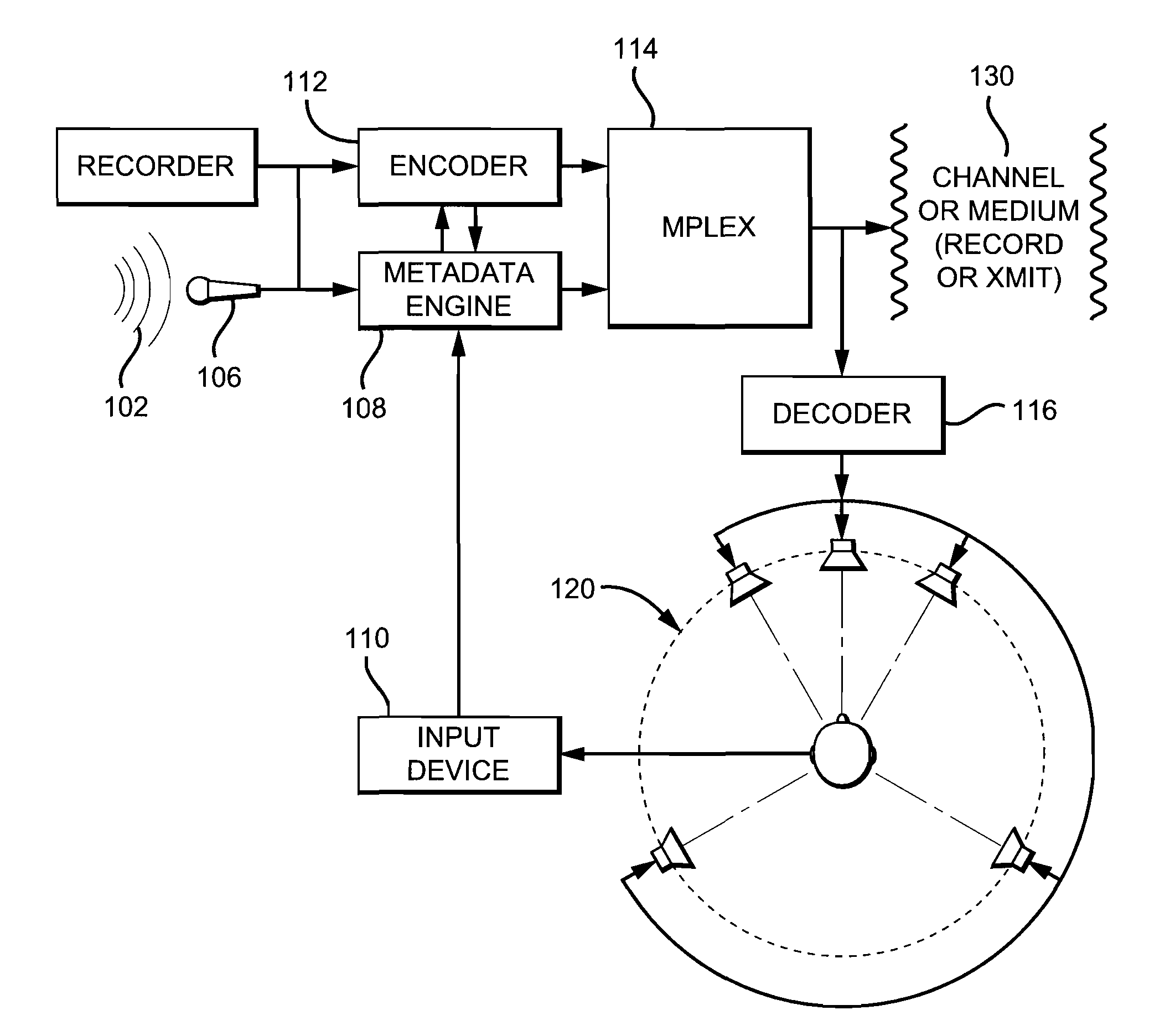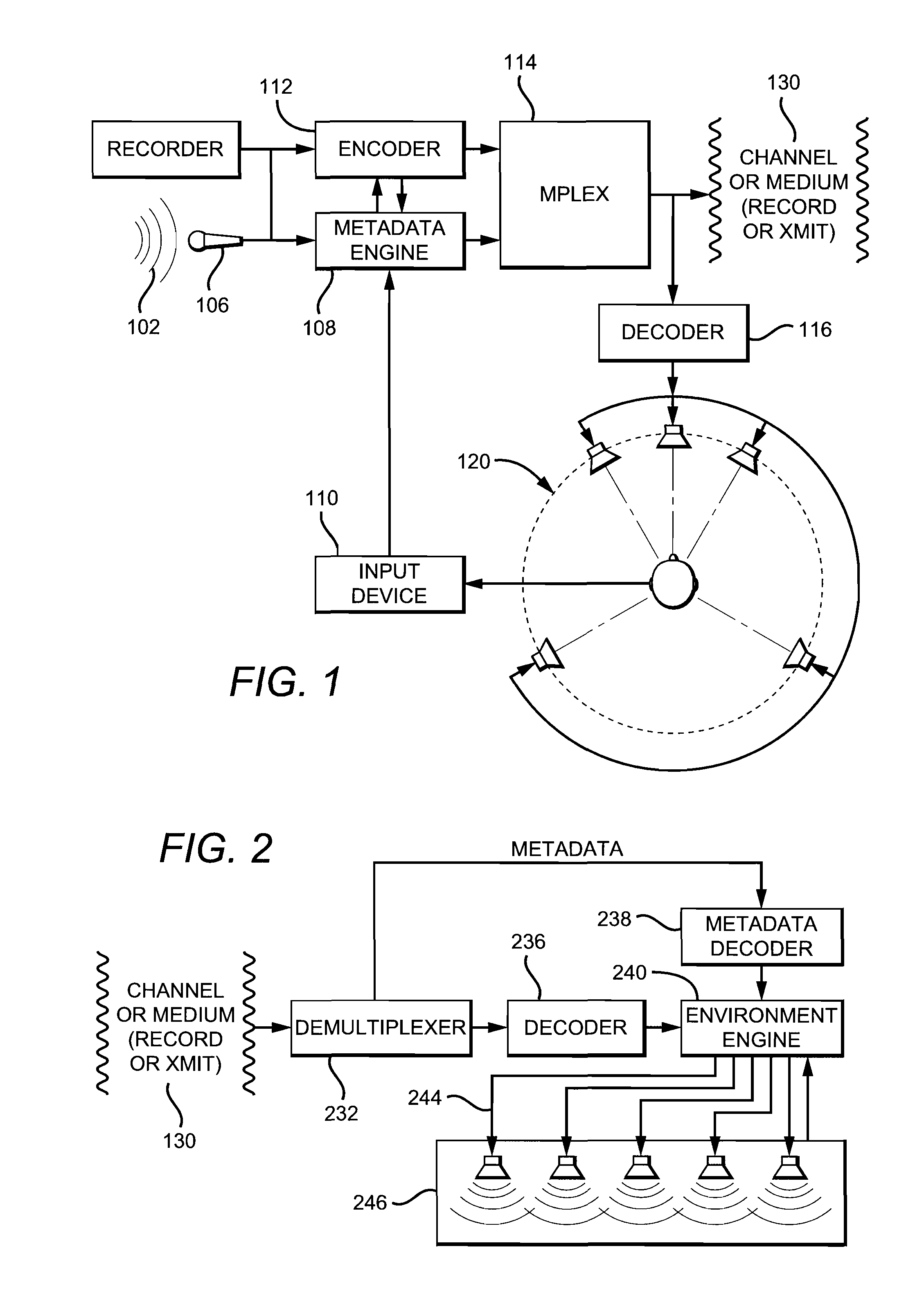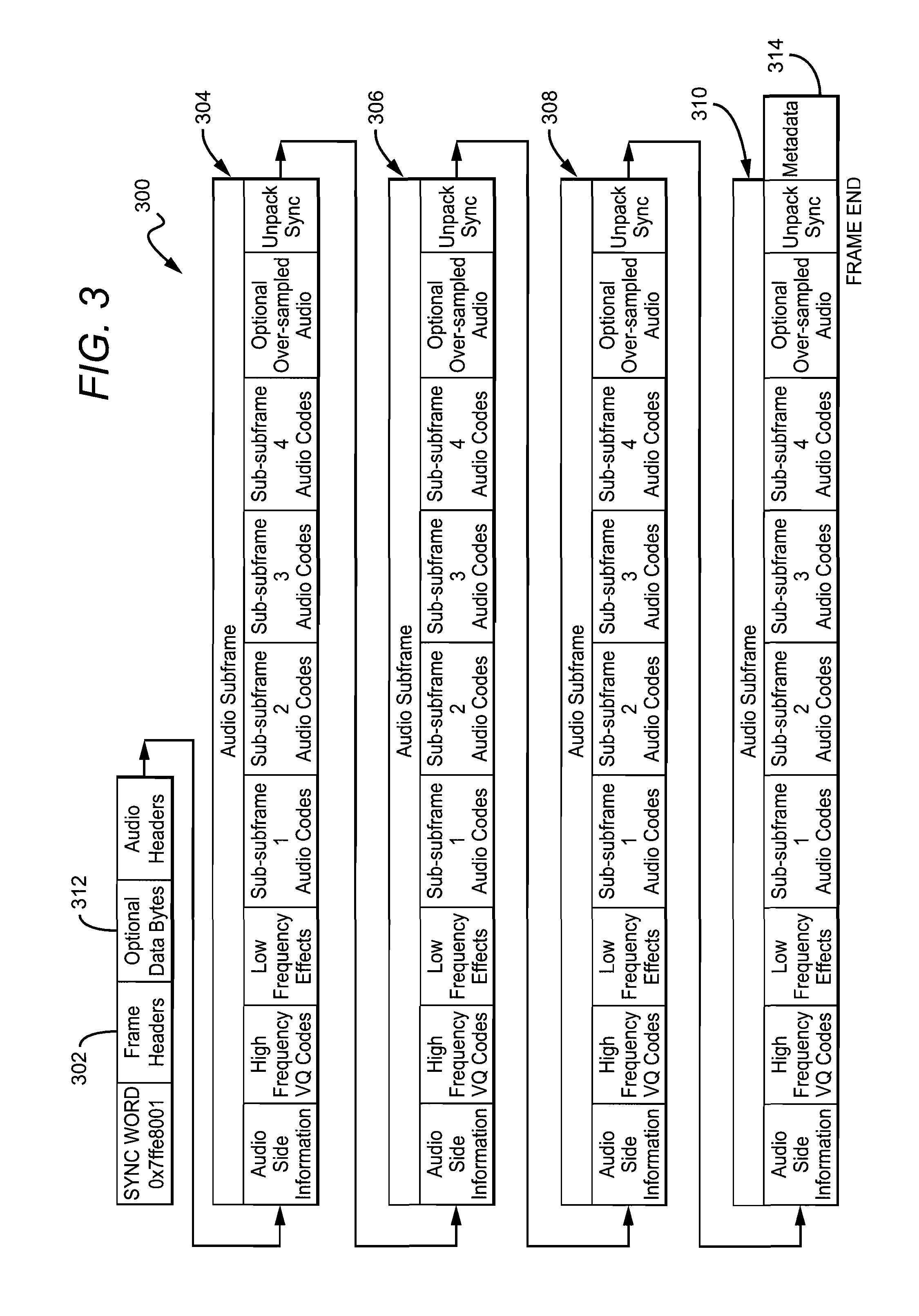Spatial audio encoding and reproduction of diffuse sound
a technology of spatial audio and diffuse sound, applied in the field of high-fidelity audio reproduction, can solve the problems of difficult customization of playback, rare and unusual, and achieve the effect of facilitating customization
- Summary
- Abstract
- Description
- Claims
- Application Information
AI Technical Summary
Benefits of technology
Problems solved by technology
Method used
Image
Examples
Embodiment Construction
Introduction
[0035]The invention concerns processing of audio signals, which is to say signals representing physical sound. These signals are represented by digital electronic signals. In the discussion which follows, analog waveforms may be shown or discussed to illustrate the concepts; however, it should be understood that typical embodiments of the invention will operate in the context of a time series of digital bytes or words, said bytes or words forming a discrete approximation of an analog signal or (ultimately) a physical sound. The discrete, digital signal corresponds to a digital representation of a periodically sampled audio waveform. As is known in the art, the waveform must be sampled at a rate at least sufficient to satisfy the Nyquist sampling theorem for the frequencies of interest. For example, in a typical embodiment a sampling rate of approximately 44.1 thousand samples / second may be used. Higher, oversampling rates such as 96 khz may alternatively be used. The qua...
PUM
 Login to View More
Login to View More Abstract
Description
Claims
Application Information
 Login to View More
Login to View More - R&D
- Intellectual Property
- Life Sciences
- Materials
- Tech Scout
- Unparalleled Data Quality
- Higher Quality Content
- 60% Fewer Hallucinations
Browse by: Latest US Patents, China's latest patents, Technical Efficacy Thesaurus, Application Domain, Technology Topic, Popular Technical Reports.
© 2025 PatSnap. All rights reserved.Legal|Privacy policy|Modern Slavery Act Transparency Statement|Sitemap|About US| Contact US: help@patsnap.com



